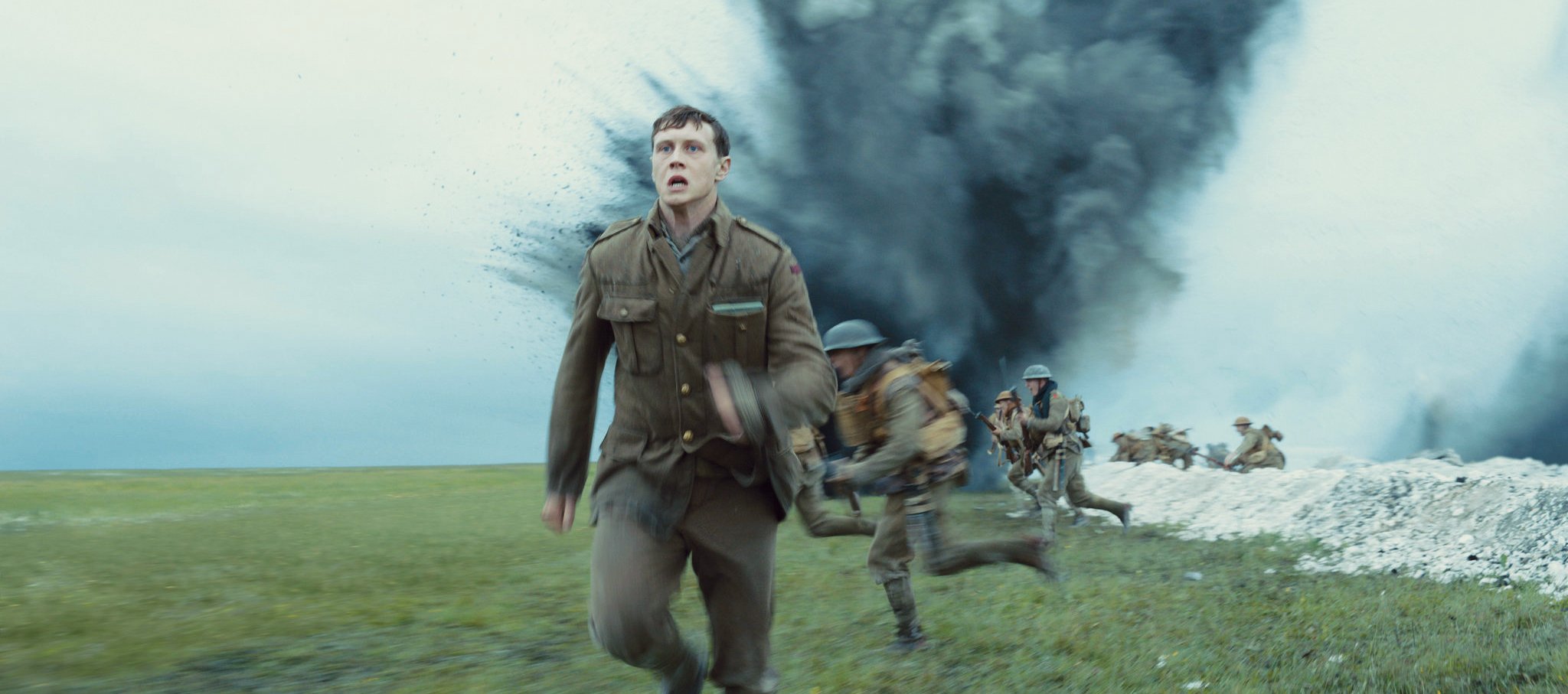
Immersive is the word for director Sam Mendes’s war epic 1917. Set in the traumatizing period of World War I, the film chronicles the journey of two infantrymen, William Schofield (George MacKay) and Tom Blake (Dean-Charles Chapman), who set out to convey a critical message to a troop stationed in an enemy zone. From the looks of it, the plot might seem straightforward with a specific goal in place. However, Sam Mendes refuses to let his ambitious war drama stray into areas of mediocrity. What you get is a shockingly atmospheric film, which makes you a participant alongside the protagonists in their arduous journey through Europe’s deadly war-struck terrain.
The biggest win for 1917 is in the way that it becomes a definitive audio-visual treat. The cinematography (Roger Deakins), which creates an illusion of being shot in a single take, is one aspect that raises the bar for the film and also for the war genre at large. The effect, especially if you are experiencing it on a big screen, is akin to being a real-time contestant in a devastating war. Resembling dynamics of an adept video game in parts, the camera captures large expanses, steep trenches, narrow passages, rickety buildings and mucky war fields with utmost finesse. The colour palette which initially seems restricted opens up as the film progresses and eventually gives us what is perhaps the most visually overwhelming film of 2019. Adding to it is the editing, which is so smooth that I seldom noticed the transitions. The impact is equally real in the rare emotional portions that involve conventional close-ups and over-the-shoulder shots.
The background score (Thomas Newman) and sound design are also departments which render 1917 a life-like affair. The music, with a brilliant dramatic heft, makes sure that we are engulfed in the scale of the disaster that the film intends to project. The sound effects, with all gunshots, screeches and mud splashes in place, are sharp enough to raise your pulse as the film traverses from one sequence to another.
As for the material on papers, Sam Mendes’s screenplay contains organic drama to keep you hooked throughout. The bond between the soldiers is well etched out and so are their ancillary concerns. There is a brief lull period, which is faintly noticeable, in the second act but the thunderous twist that follows compensates considerably. Mendes also throws in a brief chapter where Schofield’s tender side stands exposed as he deals with a French woman and an infant. The emotional and deeply vulnerable shade in this portion easily paints a picture on the plight of the civilians during this traumatic period.
ALSO READ: Who won big at the 92nd Academy Awards?
As the film ends on a heart-wrenching note, it makes sure to elicit numerous emotions – empathy for one’s own compatriots, for their families and a thought on the need for war and its resultant vagaries. There are visuals that refuse to leave your mind: the mud-drenched corpses, a moment of humaneness leading to a mammoth personal loss for one of the protagonists and so on. Being someone who easily laps up war films, 1917, I would call it the most fulfilling and involving features in the genre that I have experienced in a long time. Sam Mendes’s film leaves you breathless, as it lets you ponder over the pointless human loss that occurred during a war, which set contours for the way humankind evolved in the twentieth century.
Rating: ★★★★

